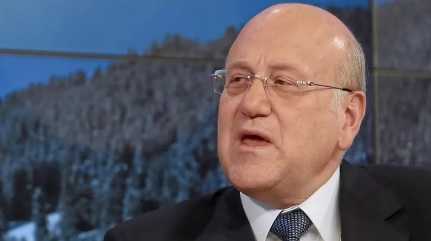
15 March 2022; MEMO: Lebanon's prime minister announced on Monday that he does not plan to stand as a candidate in the parliamentary election scheduled for May. Najib Mikati said in a televised speech that he wishes to allow the new generation to speak and define its options through the election, and he called upon Lebanese citizens to turn out to vote, calling the process a "national duty" which should not be neglected.
Mikati's announcement comes weeks after former Prime Minister Saad Hariri announced that he is withdrawing from politics and that his Future Movement party will not field any candidates in the election in May. "There is no room for any positive opportunity for Lebanon in light of Iranian influence, international confusion, national division, sectarianism and the weariness of the state," said Hariri.
However, Hariri is still seen as the most prominent representative of the Sunni community in multi-sectarian Lebanon, even though Mikati comes from Tripoli, Lebanon's second largest city, which is predominantly Sunni.
Lebanon witnessed a massive popular uprising in October, with protestors calling for the political class to be brought down. The people blame the politicians for the financial and economic crises and corruption that have devastated state institutions. The popular protests lasted for a few months, but have since died down.
Analysts do not expect the parliamentary election to bring about any major change in Lebanese politics, which have been in crisis for more than two years. Electoral law, they say, is tailored to serve powerful and deep-rooted parties, which the election will not change much.
Some experts believe that Hariri's absence from the scene in a country where the political system is based on sectarian quotas may benefit his opponents, especially the Shia Hezbollah movement. Hezbollah is likely to support Sunni lawmakers close to it, allowing it to control a majority in parliament.




